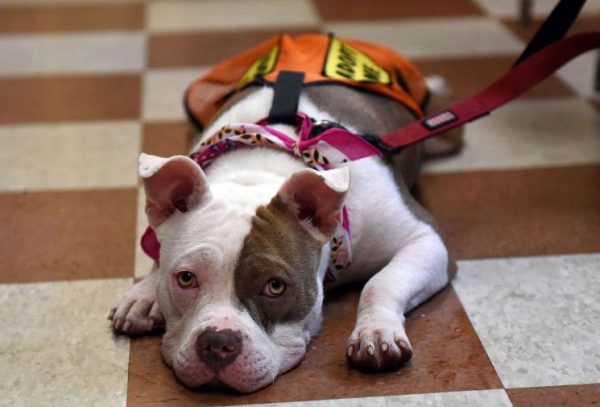By Lowcountry Paws
[F]requently people will ask me following the loss of a pet if the other pets in the home grieve as the humans do. I have always responded that, yes, I think they must even though I have no proof of this. Maybe I am assuming they respond as we do, making them little people and assuming they share/experience feelings in the same way as myself (anthropomorphism).
Last fall I was glad to read a study titled ”Owners’ perceptions of their animal’s behavioral response to the loss of an animal companion,” in the Nov. 2 online, open–access journal Animals (http://jav.ma/animalgrief).
The authors noted that it has been well documented that the impact of the loss of a pet in some people is as great as the loss of a human. Many people go through the same grieving process when a pet is gone as they do upon losing a human family member. However, research documenting the impact other pets experience when a companion animal dies is not well documented.
There is some thought that grief in humans and in animals may aid in their survival. This grief may cause the remaining animals to bond more, keeping the group together, which would increase all of their chances for survival.
An example given as a possible display of animal grief is the response of farm animals following artificial weaning. For humans to obtain milk from cows or goats, the offspring are removed from the mothers at an early age and placed on a milk replacer. This allows us to remove the milk for our own consumption. The calves will attempt to reunite with their mothers and manifest behaviors such as vocalizations, altered feeding patterns, stoppage of play behaviors, increased stress hormones and increased heart rates. The difficult thing to prove is, are the animals acting this way from the grief of separation from their mothers or is it just separation from their source of food, and it is a physical not an emotional response?
To understand if pets experienced grief, the study authors compiled a questionnaire. This was distributed through 100 veterinary clinics in Australia and New Zealand to 5,500 parents who had lost a pet within the past five years and had up to two remaining animals. The study was pretty simple and asked about changes in the following seven behaviors: feeding, sleeping, vocalization, elimination, aggression, affection, and territoriality. Of the 306 surveys returned 279 were compete enough to include in the study.
In dogs following the loss of a companion, parents reported close to five behavioral changes. Changes in affectionate behavior were common with 35 percent seeking more (26 percent being clingy/needy) and 10 percent seeking less affection.
Around 30 percent of dogs were reported to seek out and spend more time at the deceased’s favorite spot. Close to 30 percent of dogs slept more. A third of dogs were reported to eat less and at a slower rate than they had before the loss. For most dogs these behavioral changes resolved in two to six months.
For cats the loss of a companion resulted in 40 percent demanding more affection (22 percent being clingy/needy) and 15 percent seeking less affection. Owners reported 36 percent of cats seeking out the deceased favorite spot. Almost half of the cats had a change in vocalization behavior with a 43 percent increase in frequency and a 32 percent increase in the volume. As for dogs these changes in cats lasted two to six months.
An interesting finding was in the small number of pets who had lost a four- legged family member of a different species (e.g. dog losing a cat). They manifested similar behavioral changes as when the loss was of the same species.
Pet parents often ask me if the remaining pets should view the deceased’s body and I have struggled with this answer. Here I know I anthropomorphize, I routinely say no as I personally want my last memory of a deceased family member to be as they were alive, but I always leave this up to the parents.
In this study 58 percent of dogs and 42 percent of cats viewed their deceased companion. There was no difference in behaviors noted between those that viewed the deceased and those that did not. So based on this information I will continue to let Mom and Dad decide.
How do we know if the humans were not assuming the emotions they were feeling also were being shared by their pets? Were the pets acting differently because their parents were and they were not really grieving at all?
The authors conclude that further study is needed to definitively determine if and how our pets grieve. Even if they do not grieve the same as I do it is hard for me not to believe they have some type of a negative “feeling” from the loss of a companion.
Complete Article HERE!

